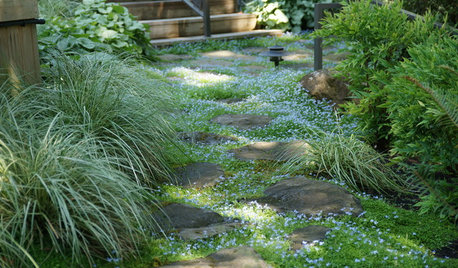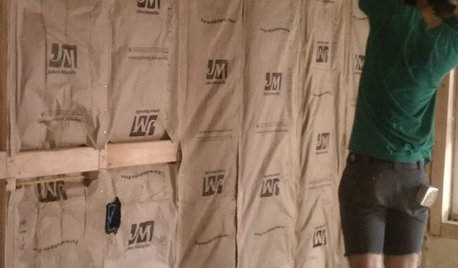Mineral Rights?
mfbenson
15 years ago
Related Stories

PRODUCT PICKSGuest Picks: Opulent Decor Sparked by Jewels and Minerals
Sumptuous colors and rich textures bring a luxurious overtone to home furnishings and accessories
Full Story
MOST POPULARHow to Choose the Right Kitchen Sink
Learn about basin configurations, sink shapes, materials and even accessories and specialty sinks
Full Story
COLORBathed in Color: How to Get White Right in the Bath
Get the pure look you want without going institutional by paying attention to tone, texture and sheen in an all-white bathroom
Full Story
GREAT HOME PROJECTSPower to the People: Outlets Right Where You Want Them
No more crawling and craning. With outlets in furniture, drawers and cabinets, access to power has never been easier
Full Story
LANDSCAPE DESIGNHow to Pick the Right Floor for Your Garden Room
Crunch the facts on gravel, flagstone, brick, tile and more with our mini guide to outdoor flooring surfaces
Full Story
FLOORSIs Radiant Heating or Cooling Right for You?
Questions to ask before you go for one of these temperature systems in your floors or walls (yes, walls)
Full Story
REMODELING GUIDESCool Your House (and Costs) With the Right Insulation
Insulation offers one of the best paybacks on your investment in your house. Here are some types to discuss with your contractor
Full Story
FLOORSAre Stone Floors Right for Your Home?
If you’re thinking about going with this hard-wearing material, here are important pros and cons to weigh
Full Story
DECORATING GUIDESDecorating 101: How to Use White Right
If you’ve ever been in white-paint-swatch limbo, you know white can be tricky to work with. Here’s how to get the fresh look you’re after
Full Story
TRIMTrim Color Tips: Get Your White Trim Right
Set off wood tones, highlight architectural features, go minimalist ... white trim is anything but standard when you know how to use it
Full Story







tx_happy_camper
xamsx
Related Professionals
Ferry Pass Architects & Building Designers · Cedar Hill General Contractors · Centereach General Contractors · Eatontown General Contractors · Forest Hills General Contractors · Green Bay General Contractors · Mashpee General Contractors · McPherson General Contractors · Mineral Wells General Contractors · Rancho Santa Margarita General Contractors · Riverdale General Contractors · Roselle General Contractors · Stillwater General Contractors · Wheaton General Contractors · Cusseta Interior Designers & Decoratorscnvh
deniseandspike
kgsd
rosie_2006
cnvh
housenewbie
brickeyee
cnvh
TxMarti
brickeyee
cnvh
divadeva
devorah
hopiex1_netzero_com
marie_ndcal
wisconsitom
zippity1